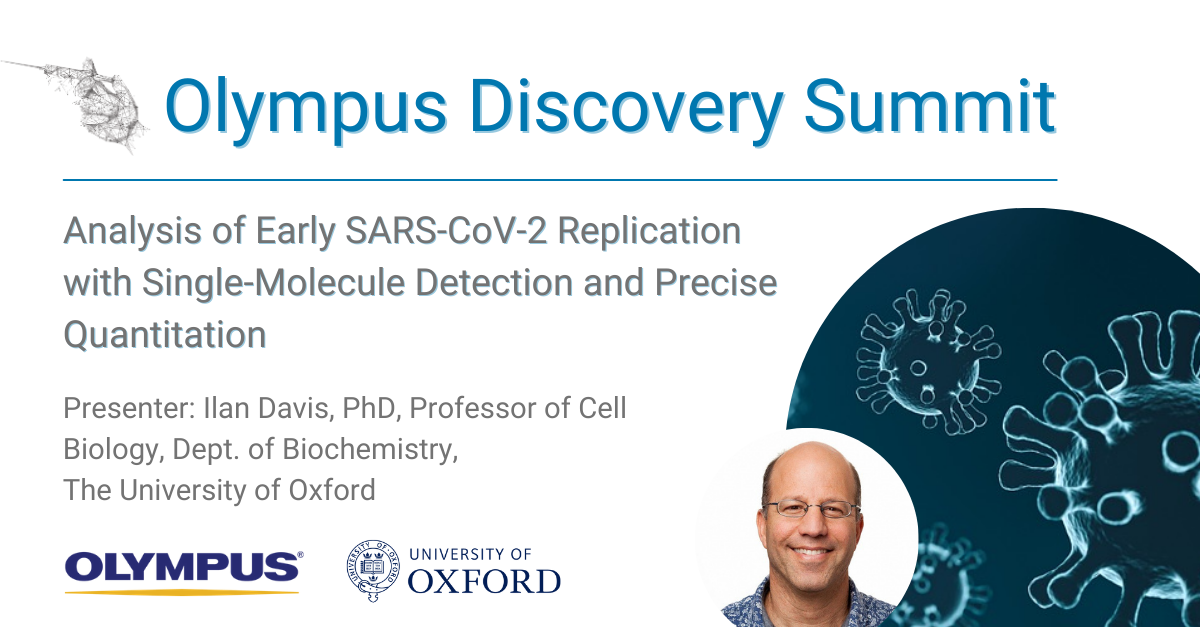Analysis of Early SARS-CoV-2 Replication with Single-Molecule Detection and Precise Quantitation
The COVID-19 pandemic is caused by SARS-CoV2, a coronavirus whose early stages of infection are incompletely understood. We have applied single-molecule fluorescence in situ hybridization methods to quantitate the earliest stages of infection by co-detect viral replication of its genome and subgenome together with cellular and viral proteins. Using very high-sensitivity detection combined with high-resolution imaging and precise image analysis, we have uncovered unexpected aspects of early viral infection.
Presenter: Ilan Davis, Professor of Cell Biology, Dept. of Biochemistry, The University of Oxford

Professor Ilan Davis is a Wellcome Trust Senior Fellow and holds the chair of Cell Biology at the Department of Biochemistry, University of Oxford. Previously he was a group leader at the Wellcome Trust Centre for Cell Biology, University of Edinburgh. Ilan Davis studied Natural Science, Genetics at the University of Cambridge and obtained his PhD Developmental Biology University of Oxford. In 2011, he was elected as an EMBO fellow. His work focuses on the mechanism of mRNA transport and localized translation in Drosophila. His work has been of major relevance well beyond Drosophila and the methods that he has developed have been widely adopted by others. He has also made major contributions to the cell biology community in Europe by obtaining the first European OMX, a revolutionary widefield deconvolution microscope and by playing a key role in advising the Wellcome Trust and others on funding strategies and new national advanced light microscopy centers.
Additional authors: Jeff Lee, Peter Wing et al. Alfredo Castello and Jane McKeating
Analysis of Early SARS-CoV-2 Replication with Single-Molecule Detection and Precise Quantitation
|
Sorry, this page is not
available in your country.
